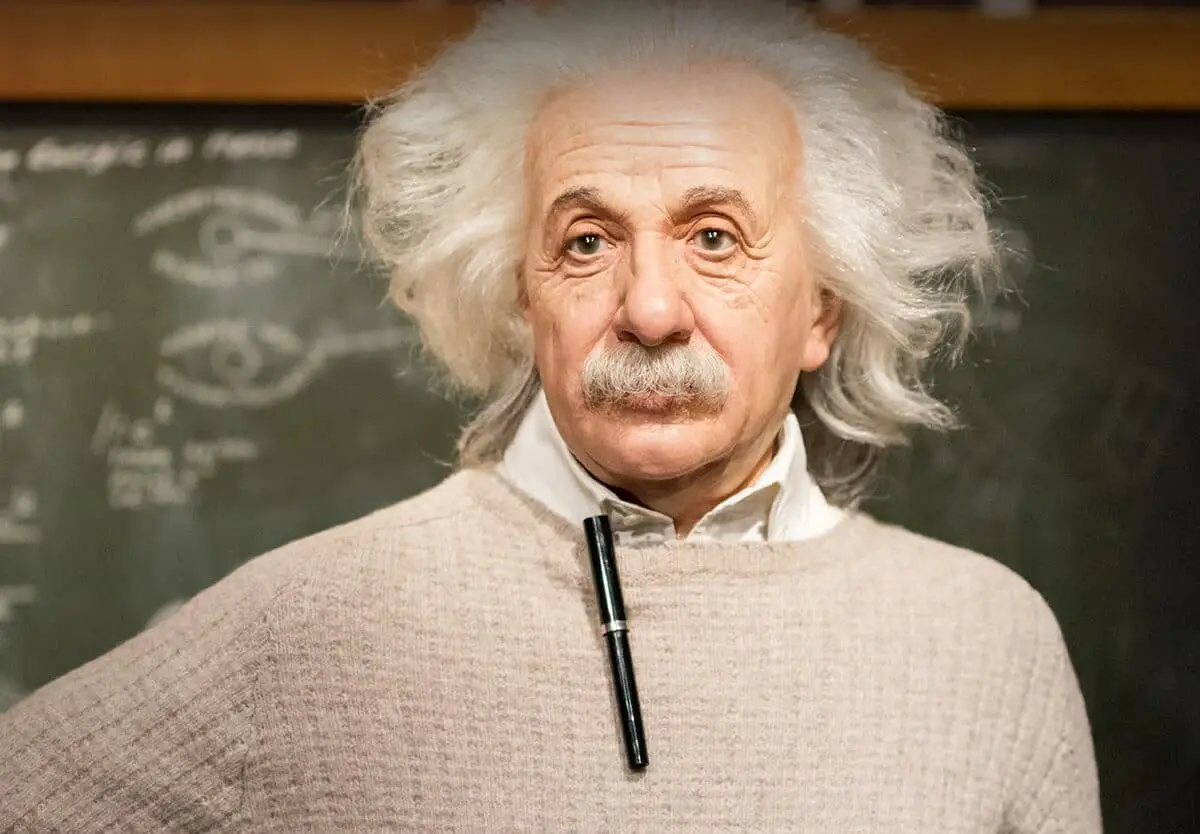- RESEARCHDistance Learning at AIU is enhanced by vast academic resources and innovative technologies build into the Virtual Campus: Hundreds of self-paced courses with video lectures and step by step lessons, thousands of optional assignments, 140,000 e-books, the Social Media & Networking platform allowing collaboration/chat/communications between students, and MYAIU develop students holistically in 11 areas beyond just academics.
- PROGRAMS OFFERED
- Areas of Study
- Courses and Curriculum
- Open Courses
- Register for a Program
- Associate Program
- Associate in Addiction Counseling
- Associate in Agriculture Food And Resources
- Associate in Anti Terrorism Security
- Associate in Behavior Analysis In Special Education
- Associate in Bioethics
- Associate in Climatology
- Associate in Cultural Theological Communication
- Associate in Culinary Arts
- Associate in Ecotechnology
- View all Associates Programs
- Bachelor Program
- Bachelors in Community Development
- Bachelors in Environmental Science
- Bachelor in Education (B.Ed, BS)
- Bachelors in Economics
- Bachelors in Entrepreneurship
- Bachelors in Financial Administration
- Bachelors in Human Resource Management
- Bachelors in Linguistics
- Bachelors in Nutritional Science
- Bachelors in Occupational Health and Safety
- Bachelors in Psychology
- View all Bachelor Programs
- Doctorate Program
- Doctor | of Biology (PhD)
- Doctorate in Business Administration (DBA, PhD)
- Doctor of Economics (PhD)
- Doctor of Electrical Engineering (D.Sc, PhD)
- Doctor of Finance (PhD)
- Doctorate in International Relations
- Doctorate in Information Technology (D.Sc)
- Doctor of Legal Studies (PhD)
- Doctor of Project Management (PhD)
- Doctor of Sociology (PhD, D.Sc)
- Doctorate in Sustainable Natural Resources Management
- View all Doctorate Programs
- Master Program
- Postdoctoral Program
- Postdoctoral in Animal Science
- Postdoctoral in Anti Terrorism Security
- Postdoctoral in Behavior Analysis In Special Education
- Postdoctoral in Bioethics
- Postdoctoral in Blockchain Technology and Digital Currency
- Postdoctoral in Business Management
- Postdoctoral in Cloud Computing
- Postdoctoral in Computer Engineering
- View all Postdoctoral Programs
AIU offers a wide range of majors in areas including the Arts, Business, Science, Technology, Social, and Human studies. More than 120 degrees and programs are available for adult learners at the associate’s, bachelor’s, master’s, doctoral and postdoctoral level. - VIRTUAL CAMPUS
Distance Learning at AIU is enhanced by vast academic resources and innovative technologies build into the Virtual Campus: Hundreds of self-paced courses with video lectures and step by step lessons, thousands of optional assignments, 140,000 e-books, the Social Media & Networking platform allowing collaboration/chat/communications between students, and MYAIU develop students holistically in 11 areas beyond just academics.
- ALUMNI
The world is YOUR campus!”, that is the message of AIU’s month magazine Campus Mundi. Hear the voices and see the faces that make up AIU. Campus Mundi brings the world of AIU to you every months with inspirational stories, news and achievements by AIU members from around the world (students and staff are located in over 200 countries).
- RESEARCHDistance Learning at AIU is enhanced by vast academic resources and innovative technologies build into the Virtual Campus: Hundreds of self-paced courses with video lectures and step by step lessons, thousands of optional assignments, 140,000 e-books, the Social Media & Networking platform allowing collaboration/chat/communications between students, and MYAIU develop students holistically in 11 areas beyond just academics.
- PROGRAMS OFFERED
- Areas of Study
- Courses and Curriculum
- Open Courses
- Register for a Program
- Associate Program
- Associate in Addiction Counseling
- Associate in Agriculture Food And Resources
- Associate in Anti Terrorism Security
- Associate in Behavior Analysis In Special Education
- Associate in Bioethics
- Associate in Climatology
- Associate in Cultural Theological Communication
- Associate in Culinary Arts
- Associate in Ecotechnology
- View all Associates Programs
- Bachelor Program
- Bachelors in Community Development
- Bachelors in Environmental Science
- Bachelor in Education (B.Ed, BS)
- Bachelors in Economics
- Bachelors in Entrepreneurship
- Bachelors in Financial Administration
- Bachelors in Human Resource Management
- Bachelors in Linguistics
- Bachelors in Nutritional Science
- Bachelors in Occupational Health and Safety
- Bachelors in Psychology
- View all Bachelor Programs
- Doctorate Program
- Doctor | of Biology (PhD)
- Doctorate in Business Administration (DBA, PhD)
- Doctor of Economics (PhD)
- Doctor of Electrical Engineering (D.Sc, PhD)
- Doctor of Finance (PhD)
- Doctorate in International Relations
- Doctorate in Information Technology (D.Sc)
- Doctor of Legal Studies (PhD)
- Doctor of Project Management (PhD)
- Doctor of Sociology (PhD, D.Sc)
- Doctorate in Sustainable Natural Resources Management
- View all Doctorate Programs
- Master Program
- Postdoctoral Program
- Postdoctoral in Animal Science
- Postdoctoral in Anti Terrorism Security
- Postdoctoral in Behavior Analysis In Special Education
- Postdoctoral in Bioethics
- Postdoctoral in Blockchain Technology and Digital Currency
- Postdoctoral in Business Management
- Postdoctoral in Cloud Computing
- Postdoctoral in Computer Engineering
- View all Postdoctoral Programs
AIU offers a wide range of majors in areas including the Arts, Business, Science, Technology, Social, and Human studies. More than 120 degrees and programs are available for adult learners at the associate’s, bachelor’s, master’s, doctoral and postdoctoral level. - VIRTUAL CAMPUS
Distance Learning at AIU is enhanced by vast academic resources and innovative technologies build into the Virtual Campus: Hundreds of self-paced courses with video lectures and step by step lessons, thousands of optional assignments, 140,000 e-books, the Social Media & Networking platform allowing collaboration/chat/communications between students, and MYAIU develop students holistically in 11 areas beyond just academics.
- ALUMNI
The world is YOUR campus!”, that is the message of AIU’s month magazine Campus Mundi. Hear the voices and see the faces that make up AIU. Campus Mundi brings the world of AIU to you every months with inspirational stories, news and achievements by AIU members from around the world (students and staff are located in over 200 countries).
Exploring the Frontiers of Artificial Vision: The Power of Brain Implants

How could advancements in brain-computer interfaces impact healthcare in the next decade?
In what ways can innovations like artificial vision improve quality of life for individuals with disabilities?
How might the development of neurotechnology inspire you to pursue groundbreaking research in your field?
The potential of brain implants in restoring vision showcases how determination, curiosity, and scientific knowledge can turn seemingly impossible ideas into reality. What future breakthroughs could emerge if we continue to push the boundaries of neuroscience and technology?
(Login to your student section to access the AIU Additional Resources Library.)
Exploring the Frontiers of Artificial Vision: The Power of Brain Implants
In the realm of scientific innovation, the line between science fiction and reality is becoming increasingly blurred. Recent advancements in neuroscience have brought us closer to achieving a breakthrough once considered impossible: restoring a form of vision to individuals who are completely blind. The development of brain implants for artificial vision, as demonstrated by the Illinois Institute of Technology, showcases the incredible potential of human ingenuity and scientific research.
At Atlantic International University (AIU), we believe that education should empower individuals to contribute to such transformative advancements. Our commitment to experiential learning and personalized education aligns with these scientific breakthroughs, highlighting the importance of curiosity, determination, and access to knowledge in solving real-world problems.

The visual pathway of the human vision system
www.sciencedirect.com
The Science Behind Artificial Vision
Vision, one of our most relied-upon senses, begins when light enters the eye and reaches the retina. Here, light is converted into electrical signals, which then travel along the optic nerve to the visual cortex at the back of the brain. This intricate process allows us to perceive our surroundings.
However, many cases of total blindness result from damage to the eyes or optic nerve, leaving the visual cortex intact. This insight led researchers at the Illinois Institute of Technology to explore whether stimulating the brain’s visual center directly could create a new form of sight.
The Innovative Brain Implant
In 2022, the research team successfully implanted the Intracortical Visual Prosthesis (ICVP) in a patient named Brian Bussard. This device bypasses the eyes entirely by transmitting signals from a camera to electrodes implanted in the visual cortex. The result? Bussard began experiencing phosphenes—tiny flashes of light resembling radar blips—that provided crucial information about objects’ presence and location.
Although these phosphenes differ significantly from natural vision, Bussard described them as “blips on a radar screen.” While he cannot distinguish shapes or faces, the implant enables him to navigate his environment more independently, using these light signals in conjunction with other senses.

The implant
Source: Intracortical Visual Prosthesis (ICVP) images courtesy of Illinois Tech
A Reliable and Stable System
The ICVP has exceeded researchers’ expectations in terms of reliability and stability. As reported by lead researcher Philip R. Troyk, the implant has remained functional for over two years, demonstrating remarkable durability in a field where long-term success is often elusive.
Applications and Future Possibilities
The development of the ICVP represents a significant milestone, yet it is only the beginning. The research team is actively seeking new participants, particularly individuals who had normal or near-normal vision until at least age 10, as their visual cortices are more likely to respond to stimulation.
In the long term, researchers envision a more advanced, permanent system capable of delivering increasingly detailed visual information. This could drastically improve quality of life for millions worldwide, including individuals affected by degenerative conditions such as retinitis pigmentosa or optic nerve damage.

Representation of the model of the wireless implantable intracortical visual prosthesis (ICVP) stimulator
Image: Illinois Institute of Technology
The Intersection of Determination and Innovation
Scientific progress in fields like artificial vision illustrates the profound impact of human perseverance and creativity. The journey from conceptualizing brain implants to achieving functional results mirrors the broader educational philosophy of AIU: with curiosity, dedication, and access to the right tools, anyone can contribute to groundbreaking advancements.
Real-World Inspirations: Pioneers in Vision Science
- Dr. Paul Bach-y-Rita: Known as the father of sensory substitution, Bach-y-Rita demonstrated how the brain could adapt and “learn” to process sensory information through alternative channels, paving the way for visual prosthetics.
- The Argus II Retinal Prosthesis System: This device, approved by the FDA, helps individuals with retinitis pigmentosa perceive shapes and movement.
- The Dobelle Eye: Developed in the early 2000s, this implant connected a camera to electrodes in the brain, producing crude yet functional visual perceptions.
Ethical and Social Implications
While the potential benefits of artificial vision are undeniable, these advancements also raise important ethical questions. Who will have access to these technologies? How can we ensure equitable distribution of resources? And how might society need to adapt to accommodate individuals using brain-based vision systems?
Education plays a critical role in addressing these challenges. By fostering an understanding of neuroscience, ethics, and technology, we prepare future professionals to navigate these complex issues responsibly.
The Role of Lifelong Learning
The continued evolution of technologies like the ICVP underscores the necessity of lifelong learning. As innovations emerge, professionals must remain adaptable, open to new ideas, and committed to expanding their knowledge.
This philosophy aligns with the principles of andragogy, which emphasize self-directed learning tailored to each individual’s experiences and goals. AIU’s educational model supports this approach, encouraging students to explore topics they are passionate about and apply their knowledge to real-world challenges.
Looking Ahead: A Future of Possibilities
Brain implants for artificial vision offer more than just potential solutions to blindness—they embody the limitless possibilities of human ingenuity. Just as researchers at Illinois Tech are pioneering new ways to restore sight, students across all fields can contribute to transformative projects with the right education and mindset.
For those inspired by the intersection of neuroscience, technology, and innovation, exploring fields like biomedical engineering, neuroscience, and computer science can be incredibly rewarding. These disciplines offer opportunities to develop life-changing technologies that improve quality of life and expand our understanding of the brain’s capabilities.
At Atlantic International University (AIU), we provide personalized, flexible programs designed to empower students to pursue their passions and contribute to global advancements. Our experiential learning approach ensures that education remains relevant, impactful, and accessible.
Join us in shaping the future of innovation—one discovery at a time.
You can learn more about this and other interesting topics in AIU’s, wide range of recorded classes that cover various subjects of interest and that can be very useful to expand your knowledge. If this topic interests you, you can explore related live classes. Our extensive online library is also home to a wealth of knowledge, comprised of miles of e-books, serving as a valuable supplemental resource.
References:
First-of-Its-Kind Artificial Vision System Moves to Clinical Trials
ICVP artificial vision prosthesis successfully implanted
Brain implant for “artificial vision” is still working after 2 years
$2.5 Million Award Will Move First-of-Its-Kind Visual Prosthesis Brain Implant to a Clinical Trial
Intracortical Visual Prosthesis Project (ICVP)
How close are we to curing blindness?
Human-rat brain hybrid shows a way to cure blindness
First-of-its-kind Visual Prosthesis Brain Implant Moves to Clinical Trial
Plans for brain implants blur lines between humans and machines.
FIRST NEURALINK PATIENT SHOWN USING BRAIN CHIP TO CONTROL COMPUTER AND PLAY CHESS.
Reminder to our Dear Students,
Please ensure you are logged in as a student on the AIU platform and logged into the AIU Online
Library before accessing course links. This step is crucial for uninterrupted access to your learning
resources.
AIU Success Stories







Contact Us Today!
Begin Your Journey!
AIU’s Summer of Innovation and Growth gives you the ability to earn up to $5000 in tuition credit by completing free lessons and courses.
Whether you’re looking to acquire new skills, advance your career, or simply explore new interests, AIU is your gateway to a world of opportunities. With free access to 3400 lessons and hundreds of courses the ability to earn credits and earn certificates there’s no better time to start learning.
Join us today as a Guest Student and take the first step towards a brighter, more empowered future.
Explore. Learn. Achieve.

Contact Us
Atlantic International University
900 Fort Street Mall 905 Honolulu, HI 96813 info@aiu.edu
Quick Links
Home | Online Courses | Available Courses | Virtual Campus | Career Center | Available Positions | Ask Career Coach | The Job Interview | Resume Writing | Accreditation | Areas of Study | Bachelor Degree Programs | Masters Degree Programs | Doctoral Degree Programs | Course & Curriculum | Human Rights | Online Library | Representations | Student Publication | Sponsors | General Information | Mission & Vision | School of Business and Economics | School of Science and Engineering | School of Social and Human Studies | Media Center | Admission Requirements | Apply Online | Tuition | Faculty & Staff | Distance Learning Overview | Student Testimonials | AIU Blogs | Register for Program | Privacy Policy | FAQ



















